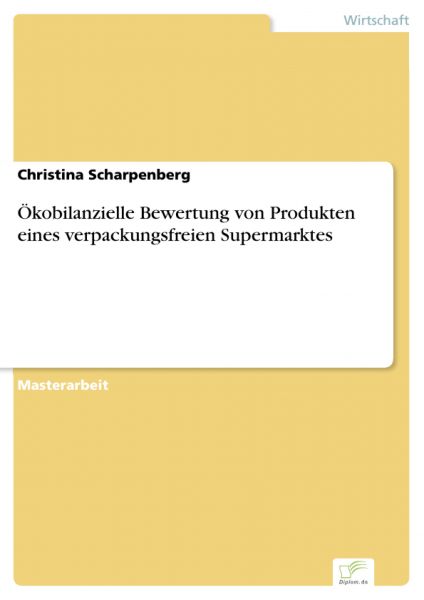Ökobilanzielle Bewertung von Produkten eines verpackungsfreien Supermarktes
Environmental activists often claim that people produce too much waste. The over-use of plastics is particularly criticized. One major argument in favor of reduction is the enormous quantity of plastic waste that ends up in the world’s oceans, including small particles that endanger marine life. Here, product packaging is one of the worst offenders.
With their packaging-free supermarket model “Original Unverpackt” (OU), Milena Glimbovski and Sara Wolf show how to reduce packaging waste in the food industry. It is widely believed that less waste will reduce environmental impacts and, indeed, if the amount of packaging material is the only difference within the supply chain, then this thesis is true. In reality, however, implementing packaging-free supermarkets leads to further changes in the supply chain.
In this study, we analyze the supply chains of six representative OU products to determine the environmental impacts of their components. Using a cradle-to-grave life cycle assessment (LCA), we compare the OU products to their conventionally packaged counterparts and show that the whole supply chain plays an important role. Although five of the six OU products did indeed perform well, there is still much room for further optimization of OUs packaging strategy. In particular, customer behavior, such as returning (or not returning) glass containers and cleaning (or not cleaning) refillable boxes, significantly impacts the LCA. The choice of packaging material and means of transport are also relevant.
Environmental activists often claim that people produce too much waste. The over-use of plastics is particularly criticized. One major argument in favor of reduction is the enormous quantity of plastic waste that ends up in the world’s oceans, including small particles that endanger marine life. Here, product packaging is one of the worst ...
Versandkostenfreie Lieferung! (eBook-Download)
Als Sofort-Download verfügbar
- Artikel-Nr.: SW9783961160341
- Artikelnummer SW9783961160341
-
Autor
Christina Scharpenberg
- Verlag Diplom.de
- Seitenzahl 108
- Veröffentlichung 21.09.2016
- ISBN 9783961160341
- Barrierefreiheit Aktuell liegen noch keine Informationen vor
- Verlag Diplom.de

